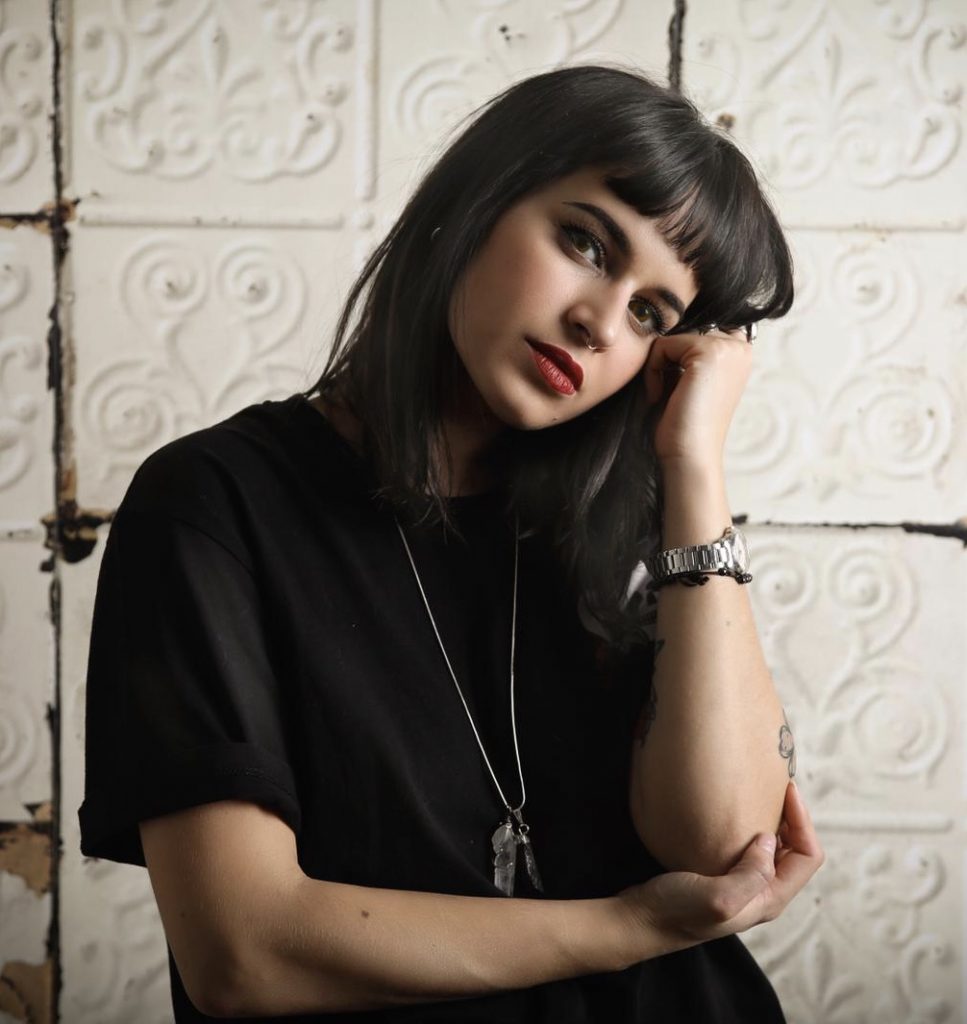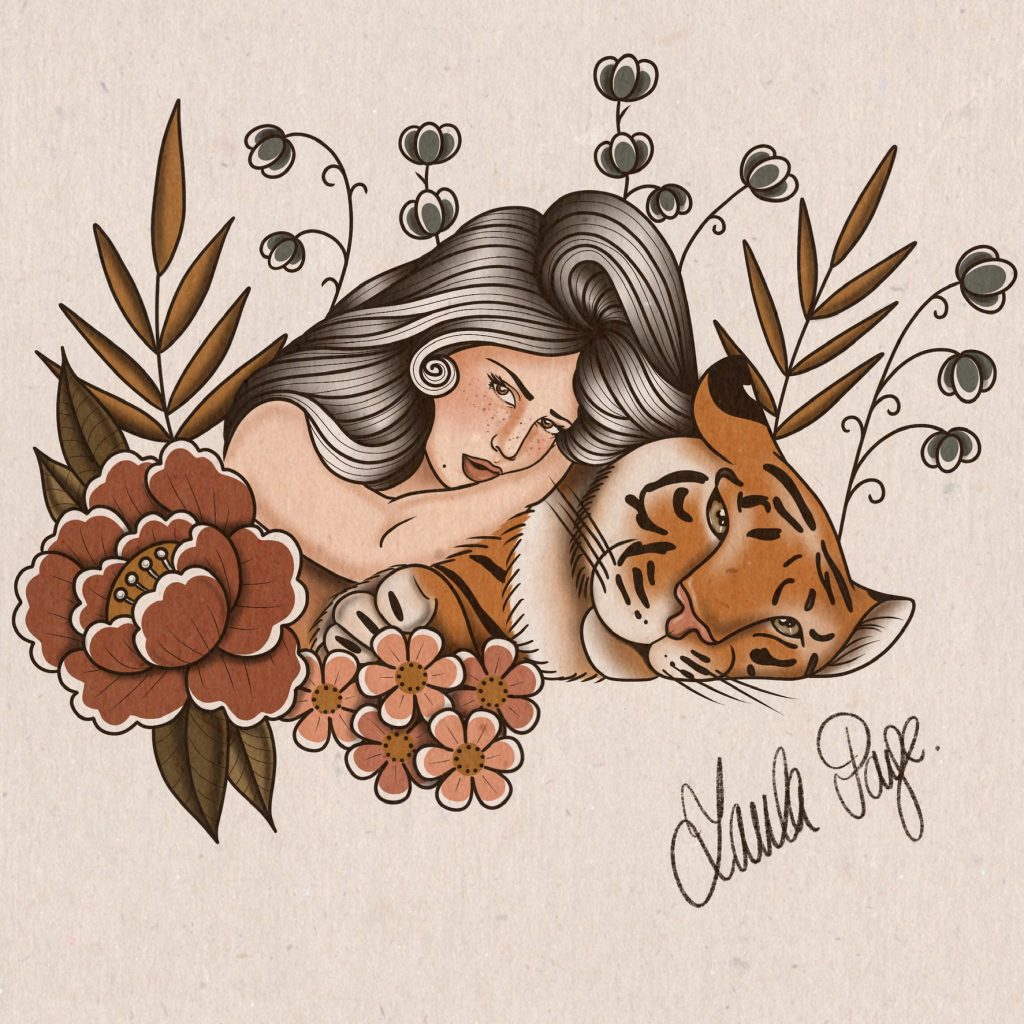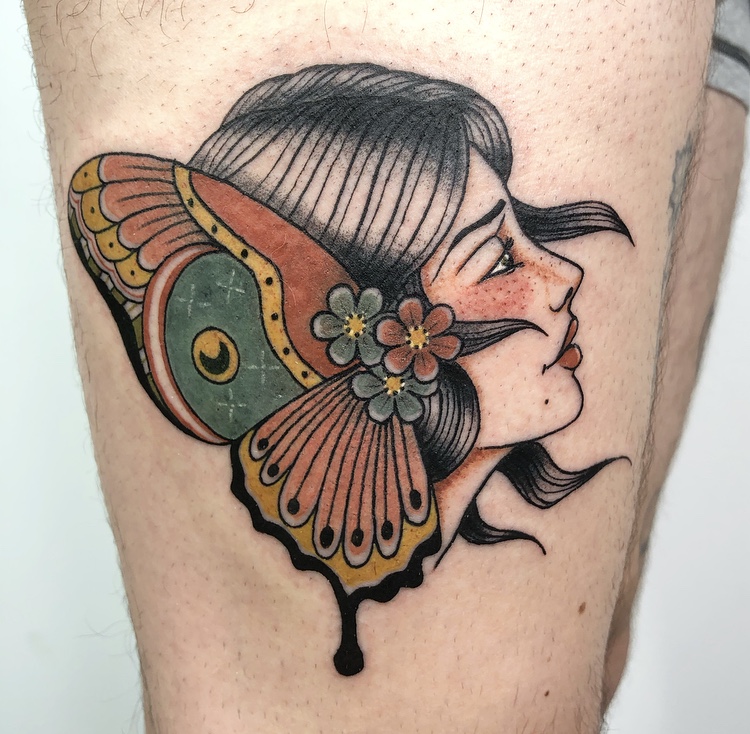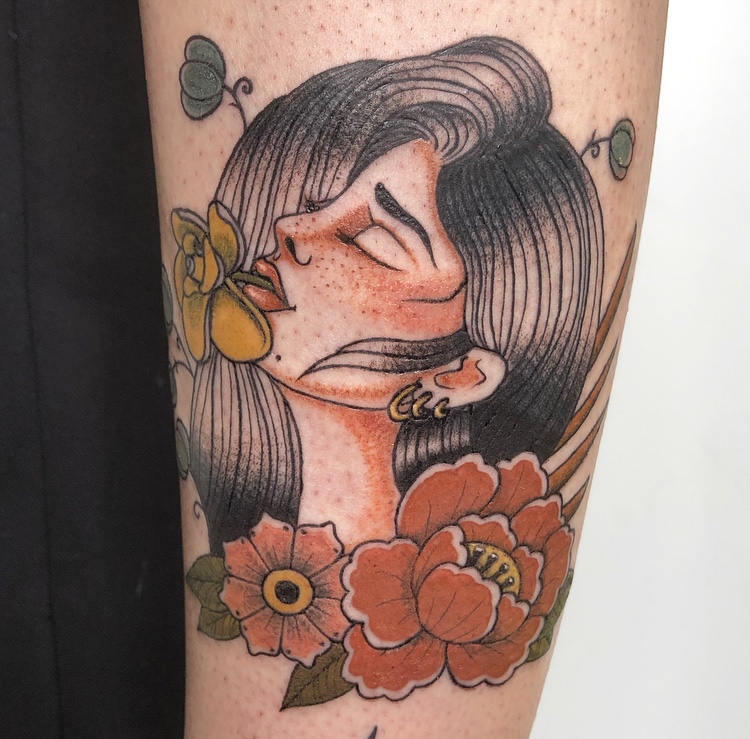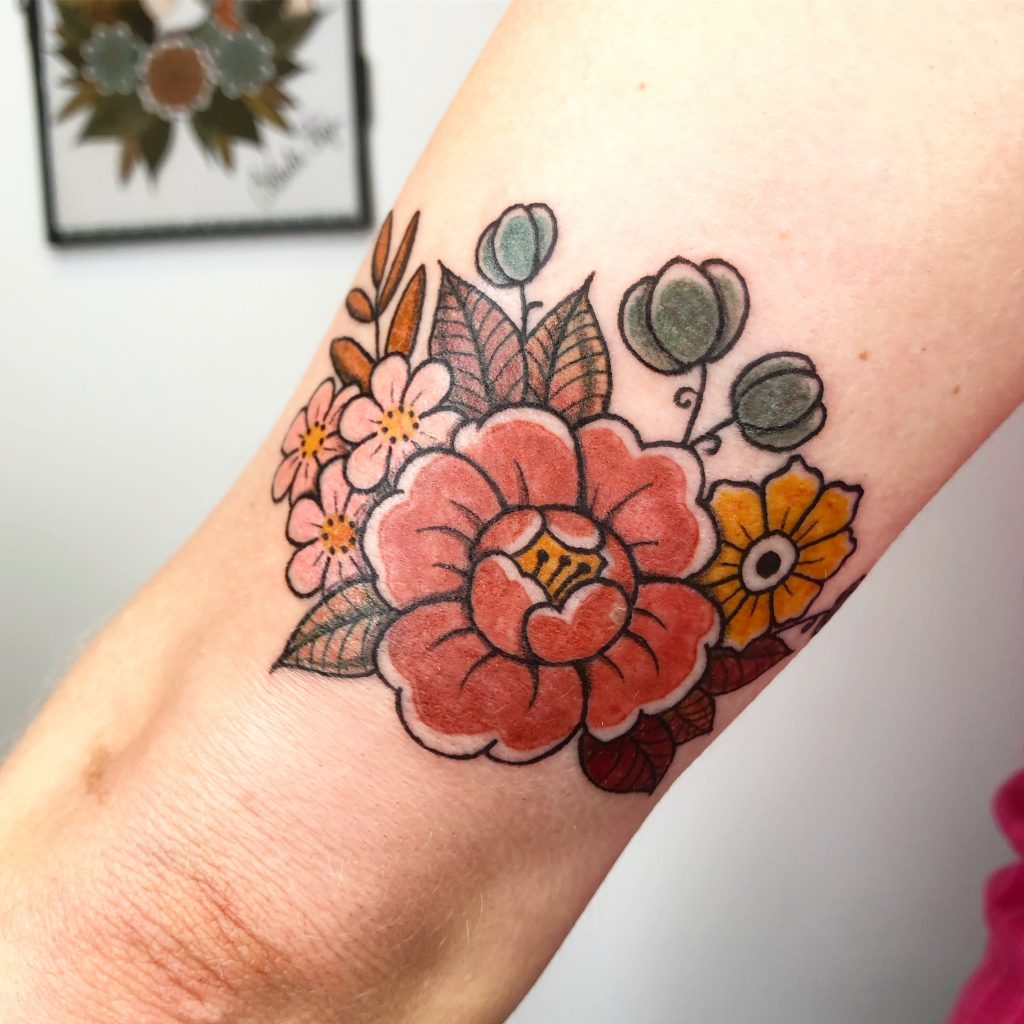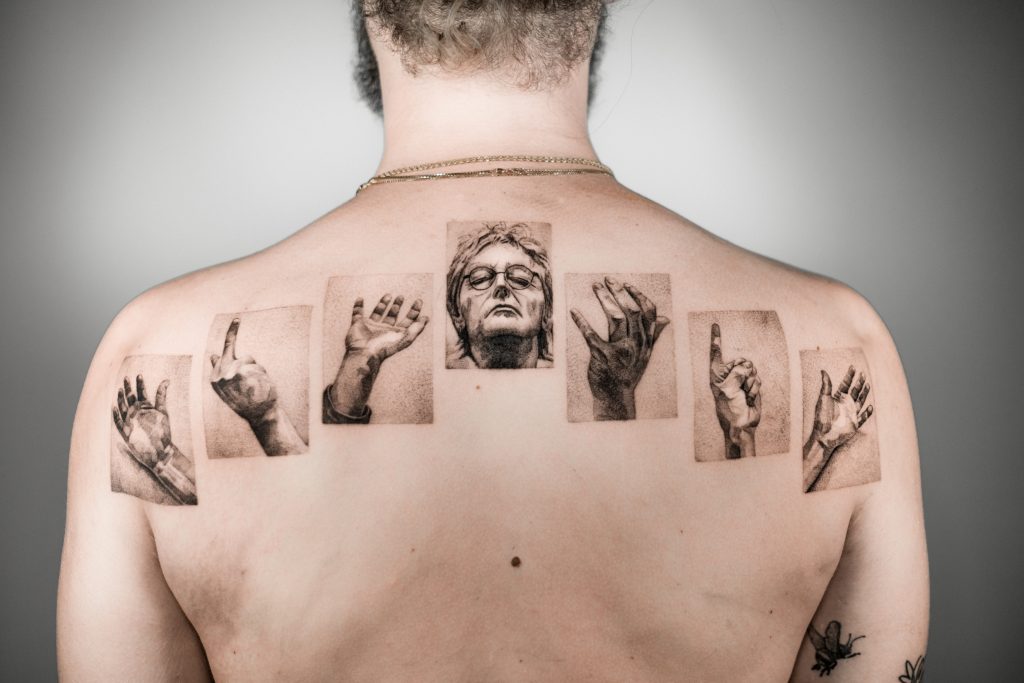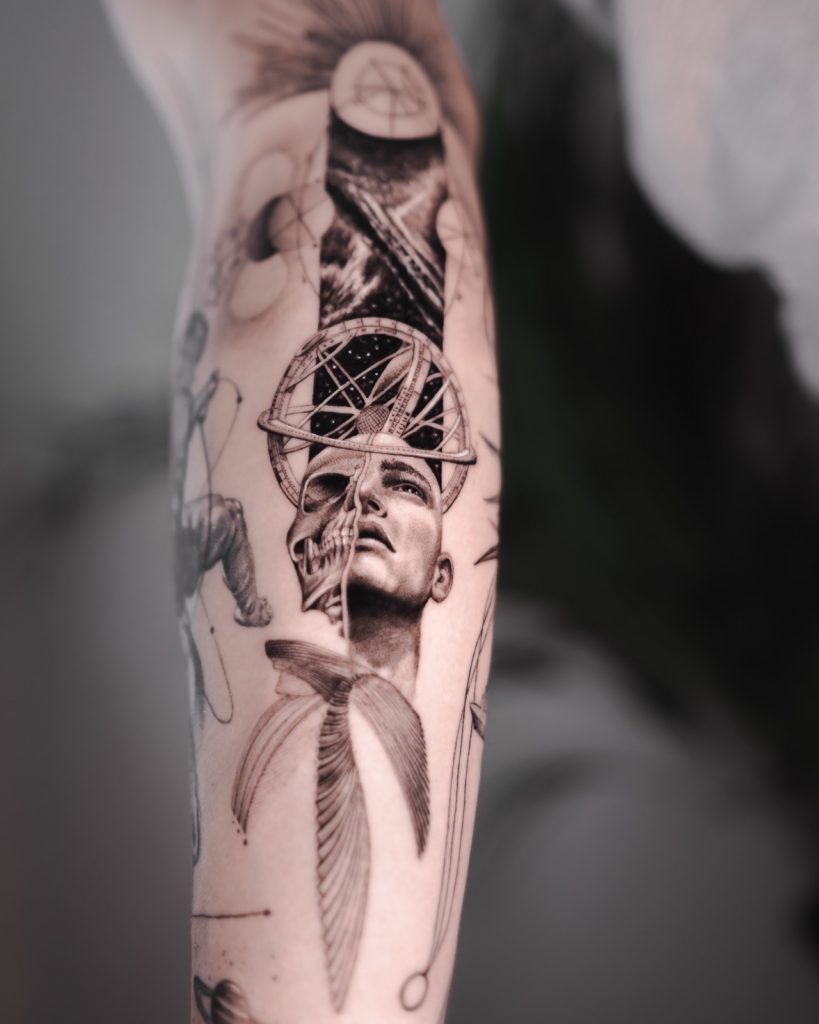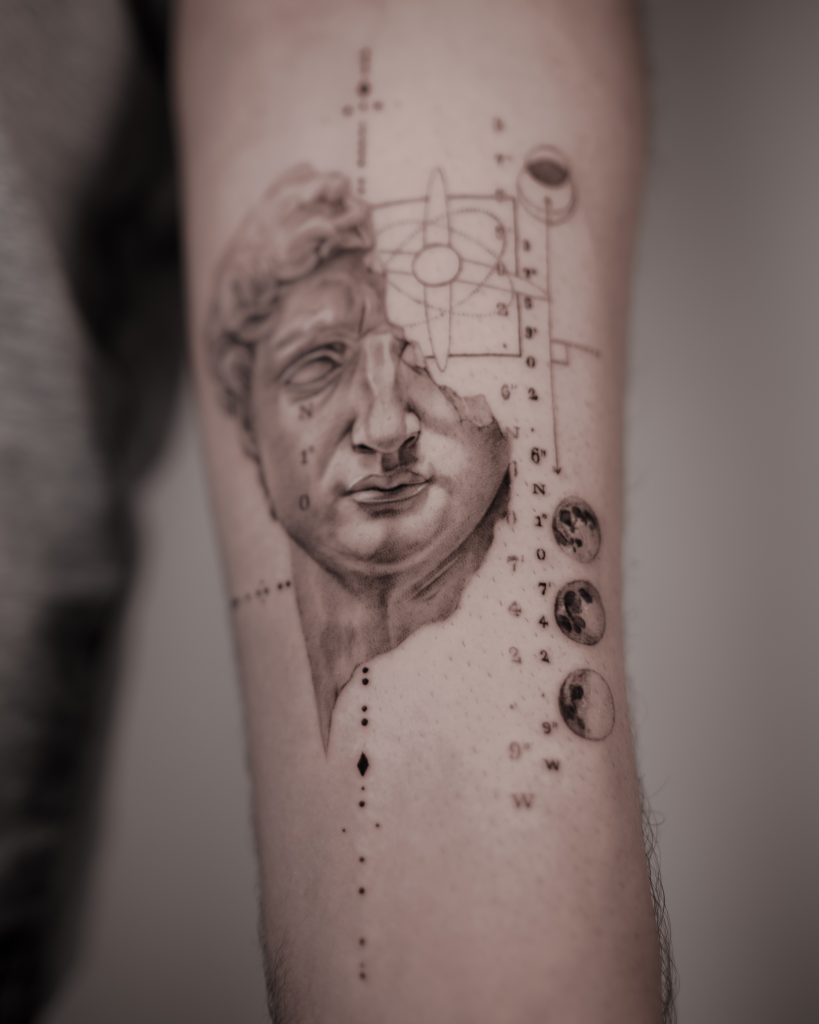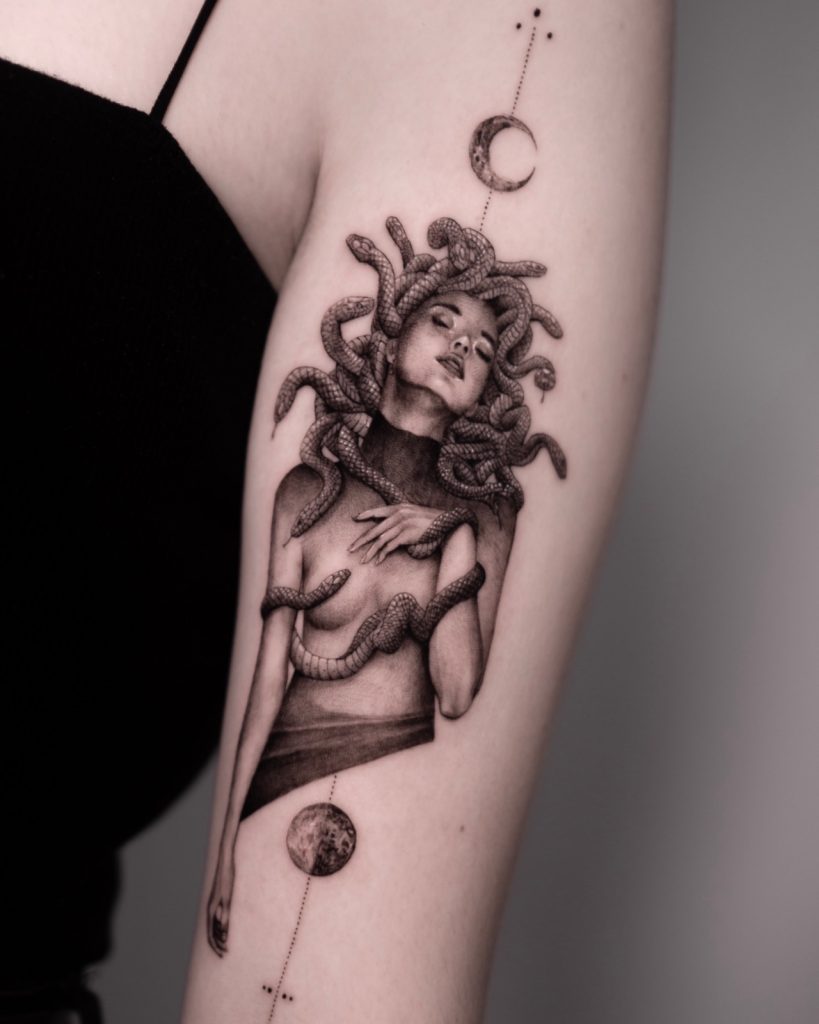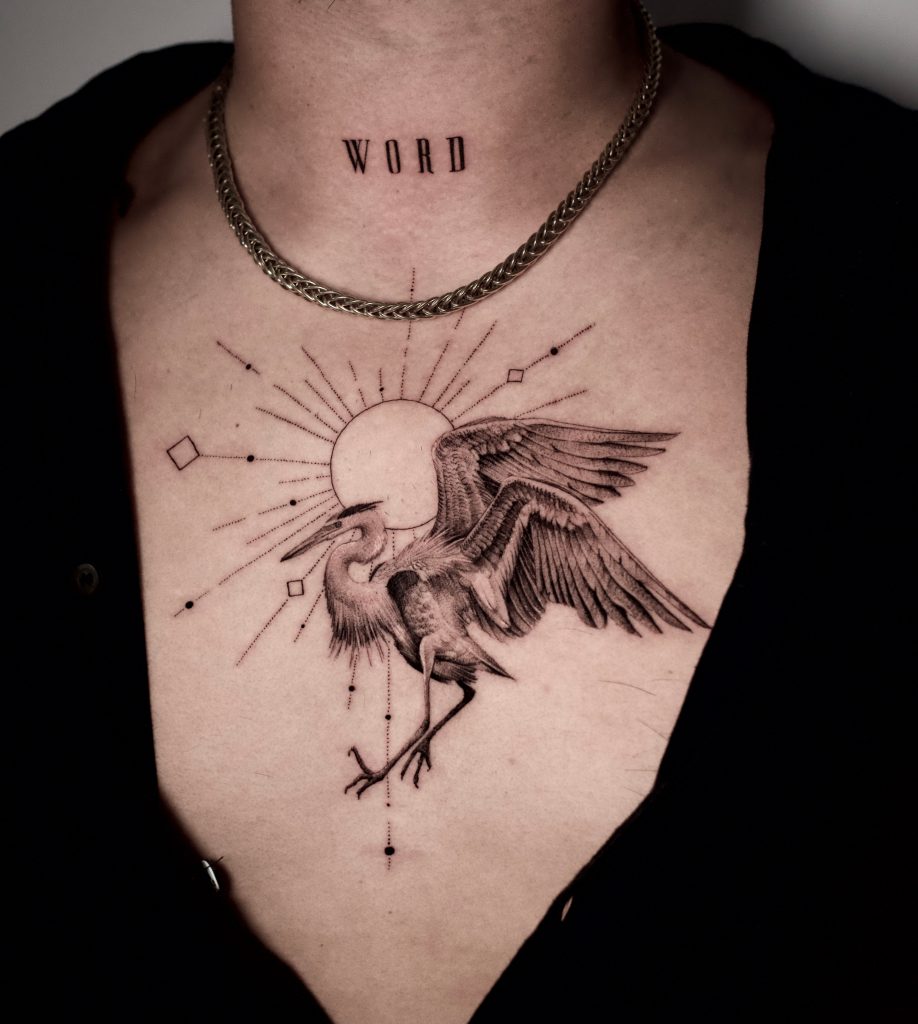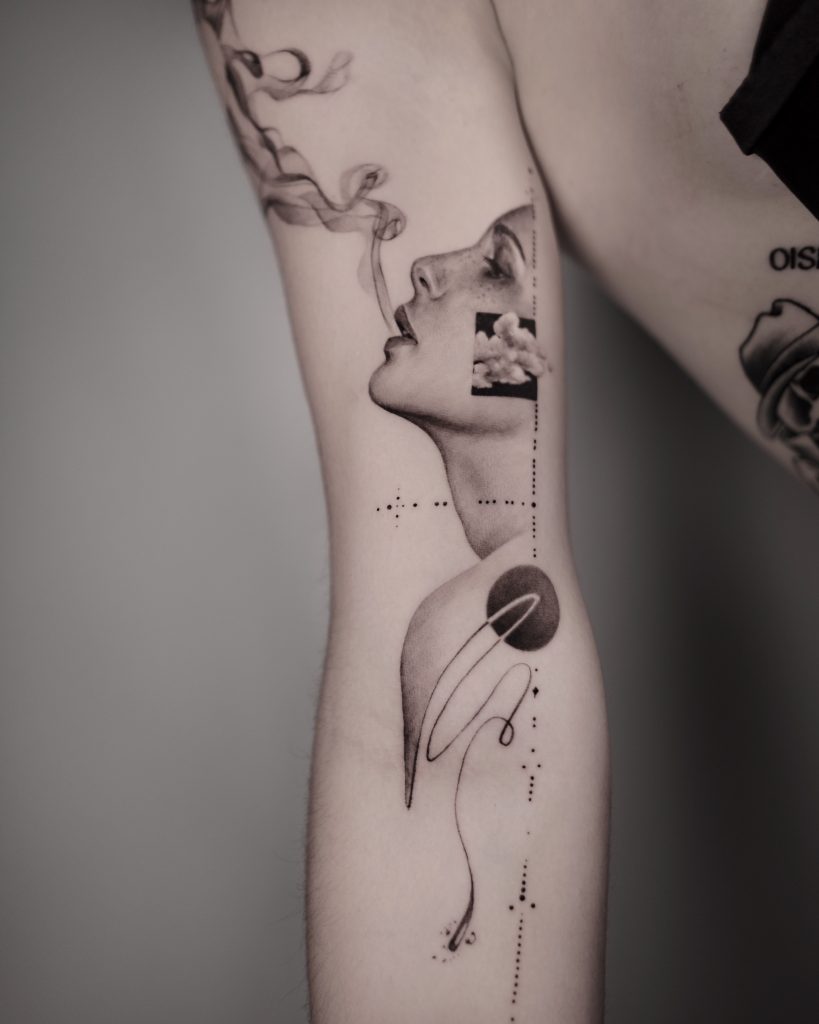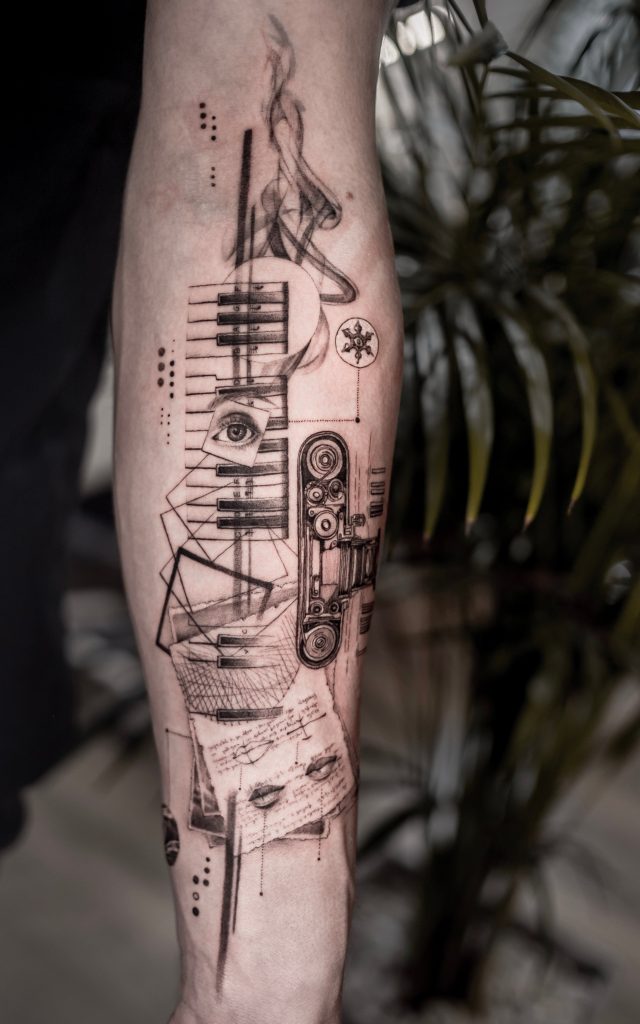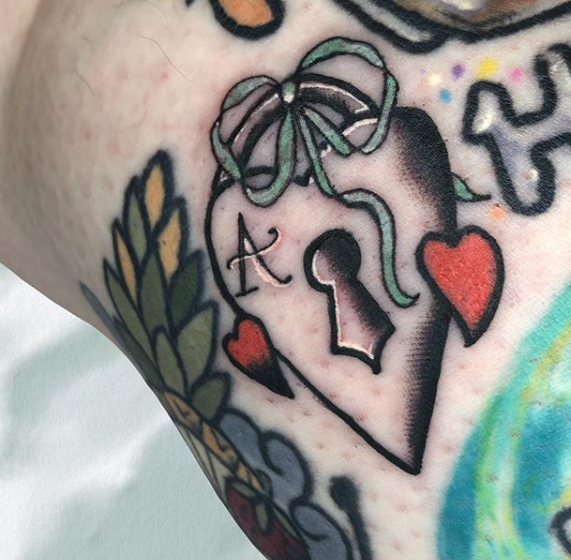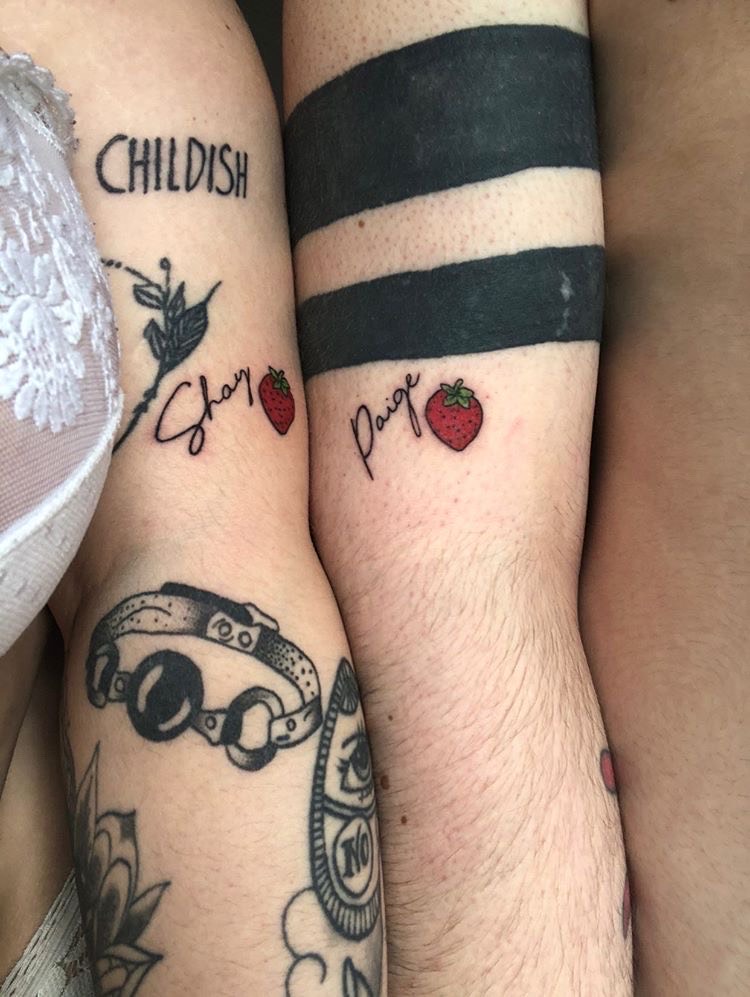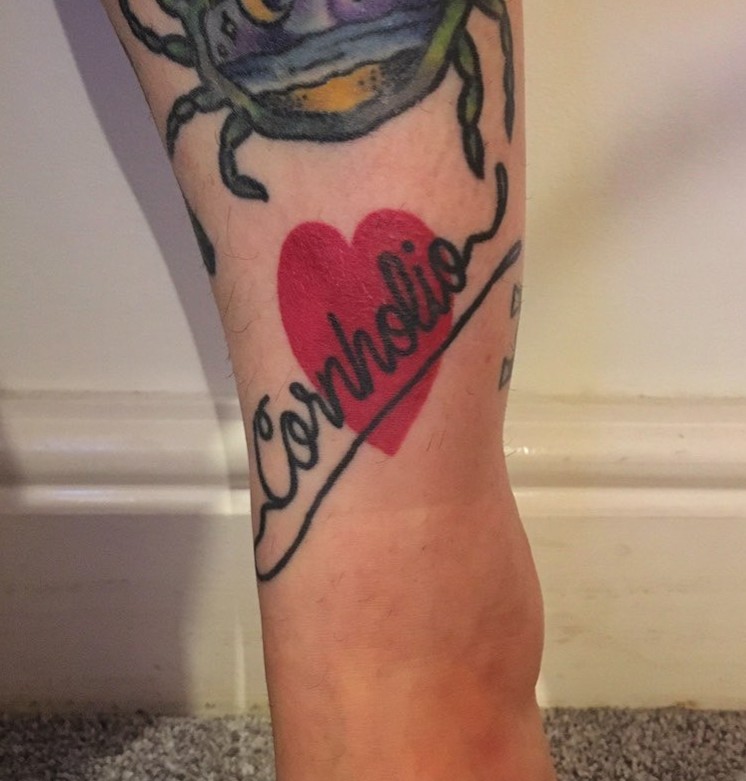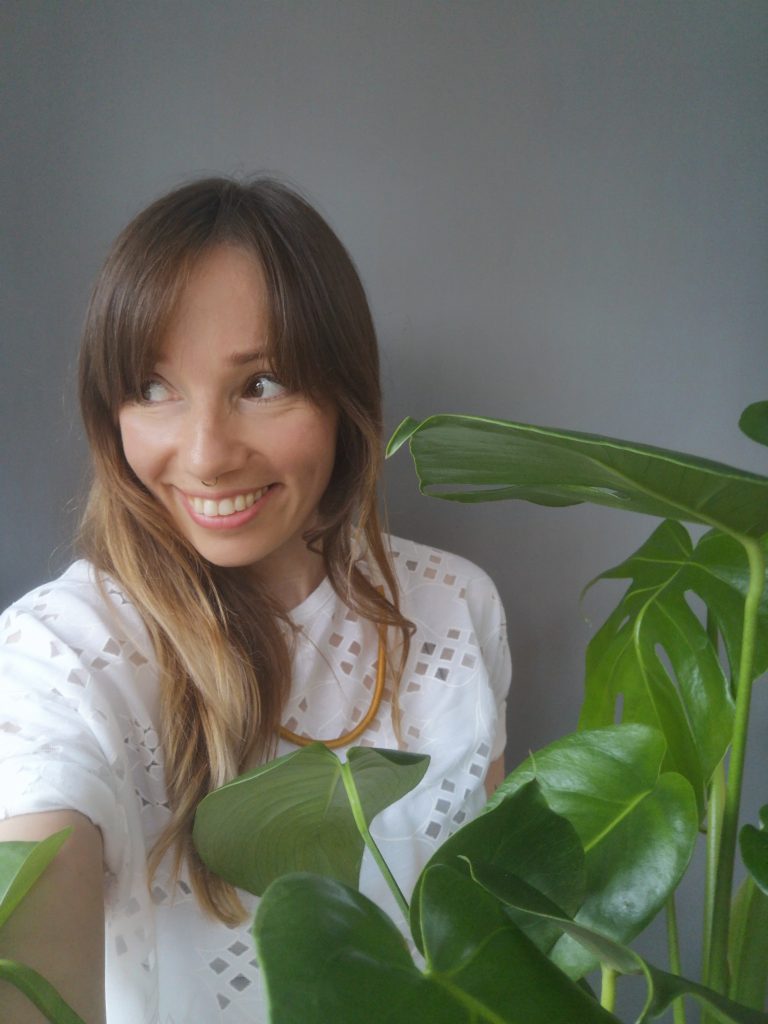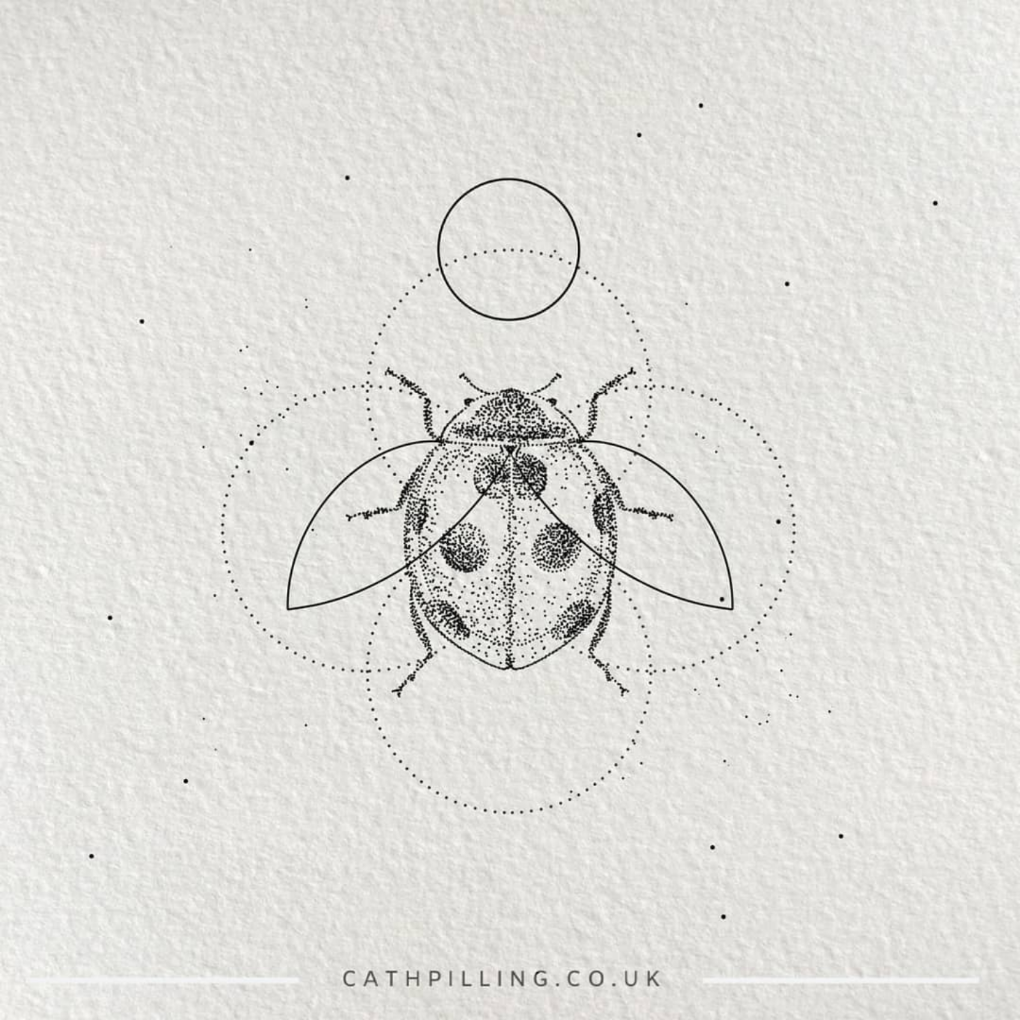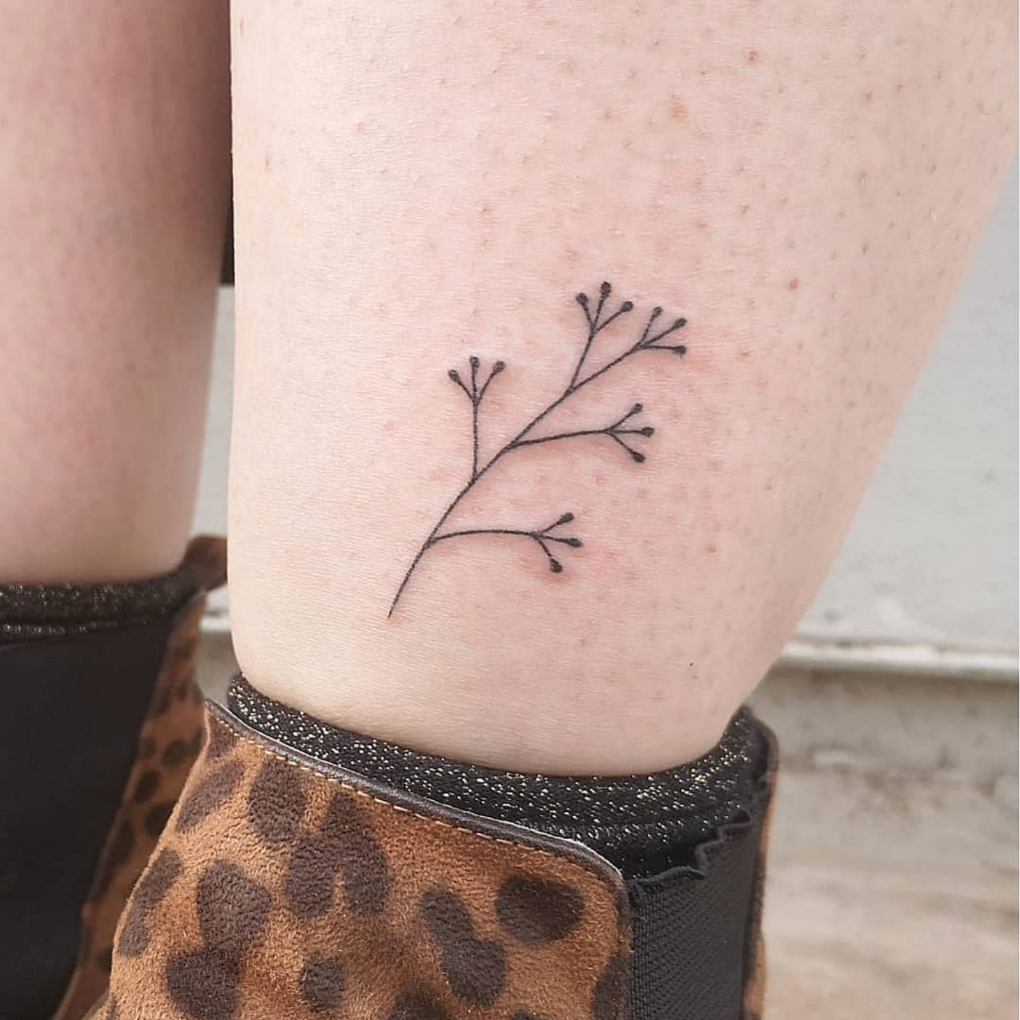Leeds-based freelance illustrator Alice Needham creates artwork with vibrant colours, detailed lines and graphic styles. Alice also created this beautiful tattooed woman just for us, read on as we chat to her about her amazing tattoo collection and the art she creates…
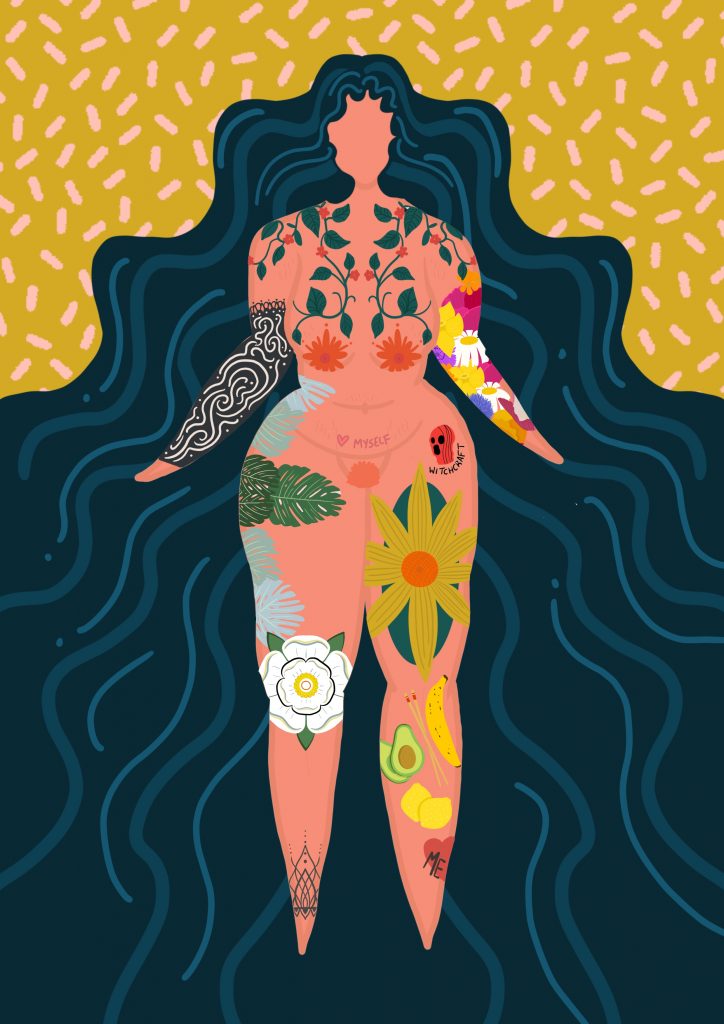
Can you tell us about your tattoos, do you have a favourite or favourite artist? I don’t know how many tattoos I have these days but I still have plenty of space left to fill, always got ideas ticking along for what I want next. A large proportion of my tattoos have been done by the lovely people at Easy Tiger in Leeds, I’ve been going to Lucy O’Connell since I first got tattooed and she is the artist who has done my botanical sleeve and the huge whale on my thigh that we call Susan.
I’ve got two blackwork pieces on my shins by James Butler of Lord of the Rings and The X-Files and a chameleon that I got done for my mum by Barney. I just think they’re all amazing and seriously nice people, Easy Tiger is definitely my favourite studio. All the people I’ve been tattooed by are fabulous and I highly recommend them all for their individual styles; Nat Hues at The Aviary, Luke , Collette at Snake and Tiger, Lucy at Cobra Club, Joshy at Rose and Thorn, Hannah at Rose and Thorn and I have to give a specific mention to Chloe who did the Van Gogh piece at the top of my arm, I put her way out of her comfort zone and she did such an incredible job!
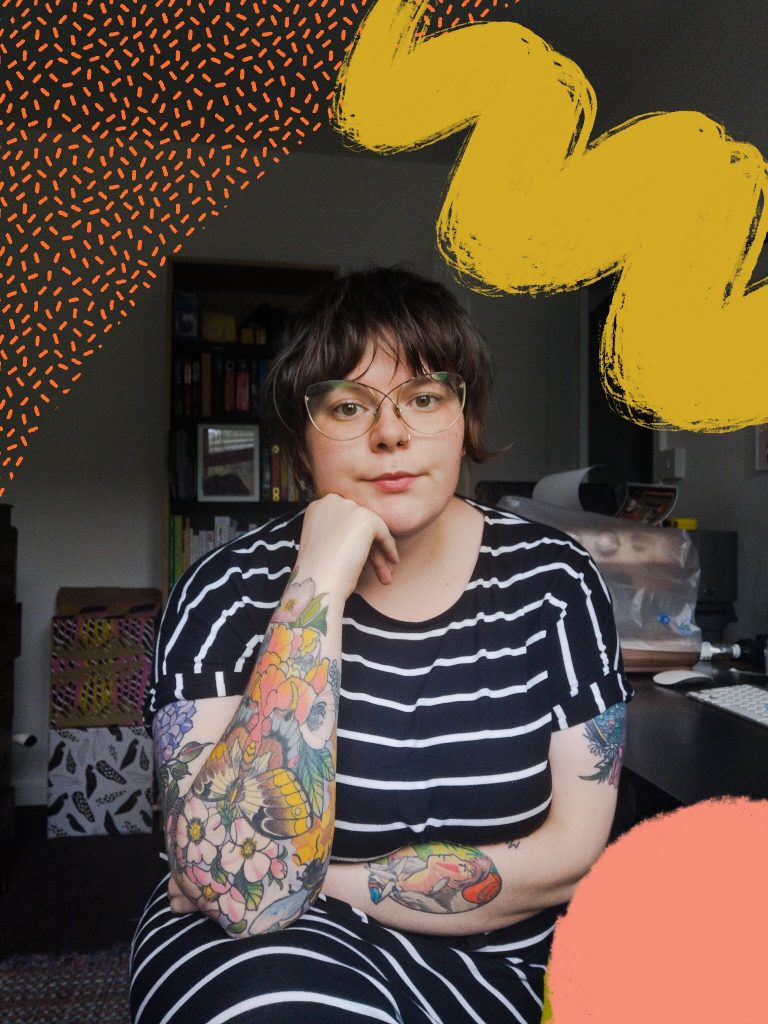
When did you start getting tattooed? What was your first? It was my 18th birthday that I got my first tattoo and it was part of what now makes up the sleeve on my left arm all done by Lucy O’Connell. I got my full inner forearm done, it’s a floral piece with a Poppy, Rose and Forget-Me-Nots. I’d always wanted to get tattoos and I booked in a year in advance with Lucy for my birthday with that idea because I’d been following her work for so long. It covers up self-harm scars from when I was a teenager and reminds me of my growth.
I hate when people ask what tattoos mean but I would say that my first is probably my most meaningful, I always used to say it is inspired by the Edvard Munch quote, ‘From my rotting body, flowers shall grow and I am in them and that is eternity.’
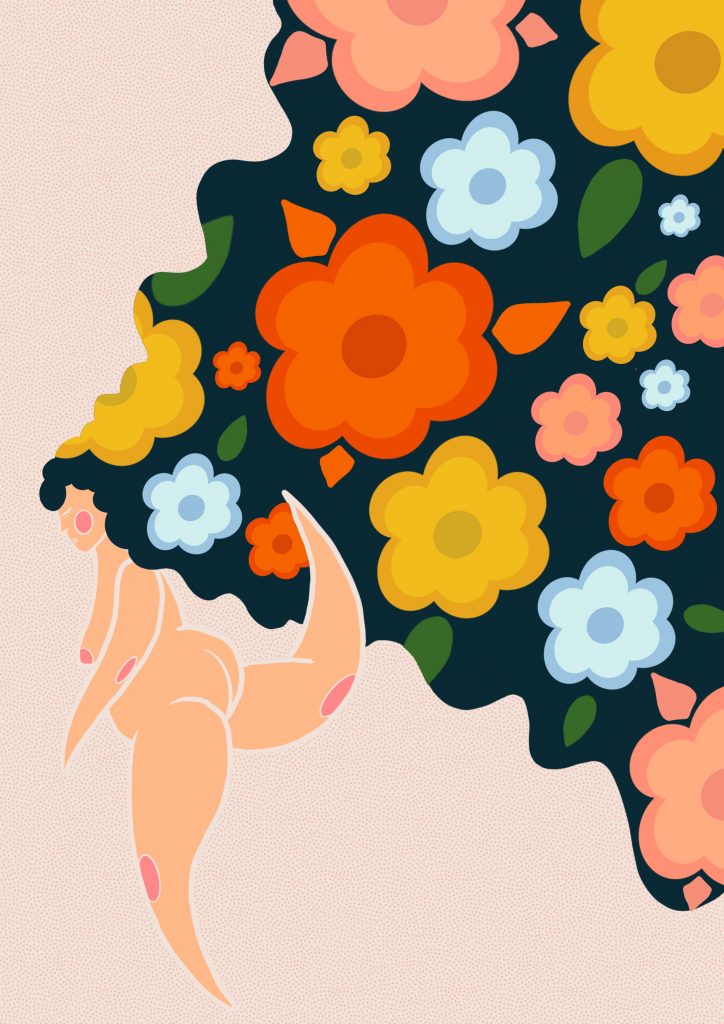
Have tattoos affected how you see yourself and your body? Having tattoos has helped me with loving my body, I like being a walking piece of art and that I can show so many different stories through my skin. They just make me feel more comfortable even if they do attract unwanted attention at times, it usually makes me laugh.
What inspires your illustrations? How would you describe your style? I’ve always been interested in illustration but I went to uni to do Fine Art which drew me away from traditional methods of art making, it was only in my final year that I started doing my illustration work on the side that I really got back into it. I tend to take inspiration from what’s going on in the world, feminism and representations of the body but I also love anything to do with botanical illustrations and bold tattoo work.
I’ve always wanted to get into the tattoo industry and it’s become what feels like a bit of a pipe dream for me, I think that’s why I like creating work that takes inspiration from tattooing but with my own style on it that works for illustration. I would say my style is bright and bold with detailed line work, I tend to work in a range of styles depending on the client or what works best with an idea.
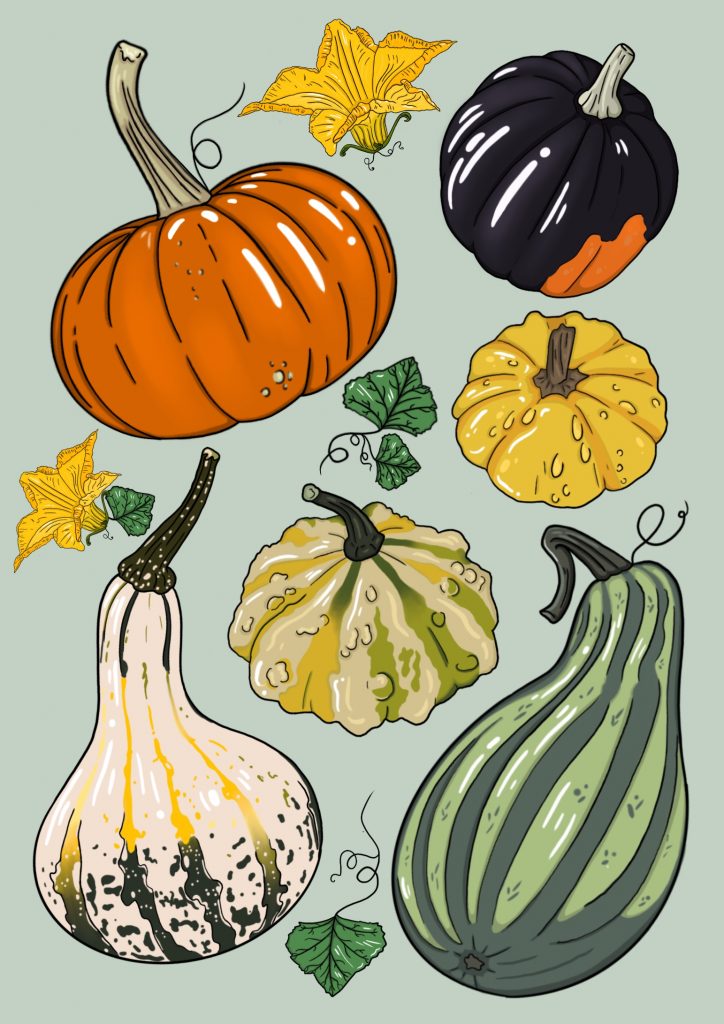
What medium do you use? How do you create each piece? I work digitally mainly through Procreate, it just offers the freedom to be able to work wherever I need to and there are no limitations. I do occasionally work in pen and ink but it’s been a while since I have! Most of the time when it comes to creating I just get an idea that pops into my head, usually if I’ve seen something that has inspired me.
I tend to do a quick sketch to get a rough idea of what it’s like then build on the detail as I go, I think I’m fairly methodical with it and I like to use colours that are complementary even if they aren’t realistic to what is being portrayed. If I’m working on a commission then I follow the client’s brief in a similar way.
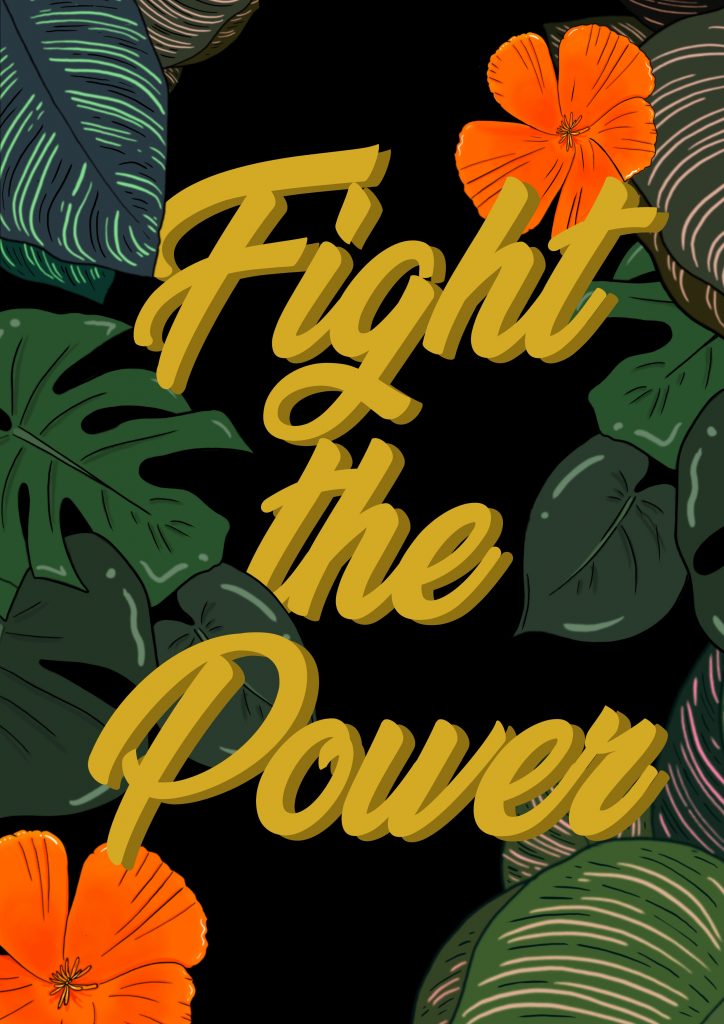
What message do you hope to share with your work? Or is there a driving force behind what you create? I think a lot of my work is a bit of fun and it’s something to brighten up their spaces. Though a lot of my pieces do have a political or social stance to them which I think is important.
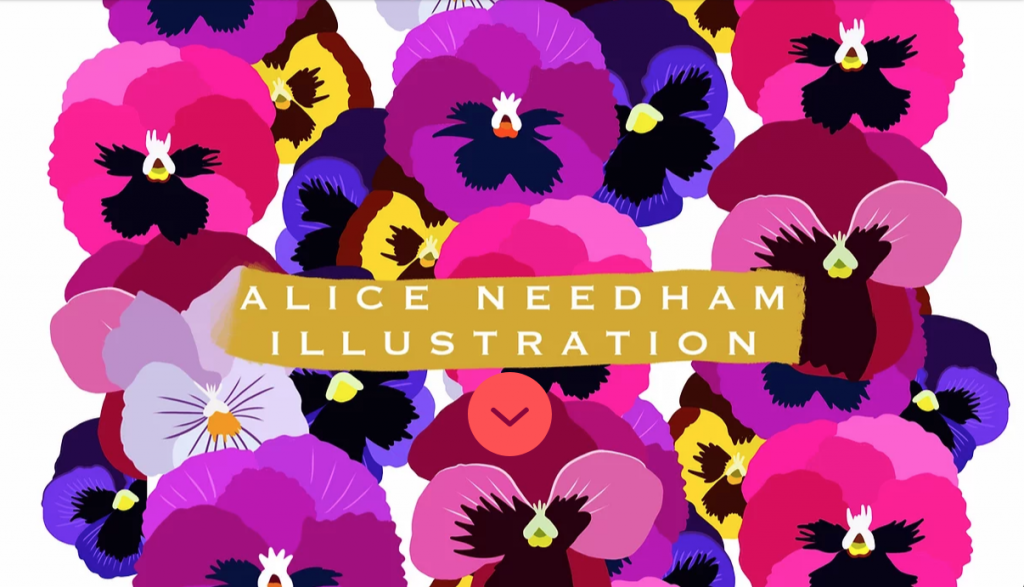
Do you do commissions? Where can people buy your art? Yes, I do! I’m always taking commissions and the best way to commission me is to have a look at my website then give me an email. I also currently sell my prints through Etsy.
